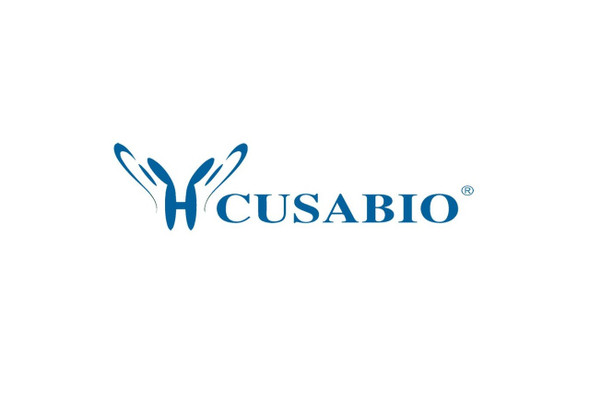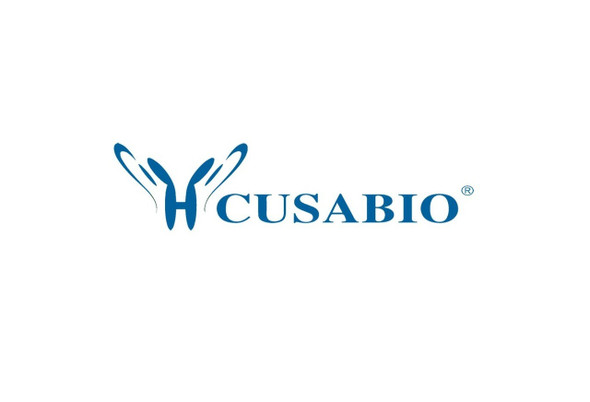Cusabio Rattus norvegicus Recombinants
Recombinant Rat Type II iodothyronine deiodinase (Dio2) | CSB-YP302542RA
- SKU:
- CSB-YP302542RA
- Availability:
- 25 - 35 Working Days
Description
Recombinant Rat Type II iodothyronine deiodinase (Dio2) | CSB-YP302542RA | Cusabio
Alternative Name(s): 5DIIDIOIIType 2 DIType-II 5'-deiodinase
Gene Names: Dio2
Research Areas: Others
Organism: Rattus norvegicus (Rat)
AA Sequence: MGLLSVDLLITLQILPVFFSNCLFLALYDSVILLKHVALLLSRSKSTRGEWRRMLTSEGLRCVWNSFLLDAYKQVKLGEDAPNSSVVHVSNPEAGNNCASEKTADGAECHLLDFASAERPLVVNFGSATUPPFTRQLPAFRQLVEEFSSVADFLLVYIDEAHPSDGWAVPGDSSMSFEVKKHRNQEDRCAAAHQLLERFSLPPQCQVVADRMDNNANVAYGVAFERVCIVQRRKIAYLGGKGPFSYNLQEVRSWLEKNFSKRUILD
Source: Yeast
Tag Info: N-terminal 6xHis-tagged
Expression Region: 1-266aa
Sequence Info: Full Length
MW: 31.8 kDa
Purity: Greater than 90% as determined by SDS-PAGE.
Relevance: Catalyzes the deiodination of T4 (3,5,3',5'-tetraiodothyronine) into T3 (3,5,3'-triiodothyronine). Essential for providing the brain with appropriate levels of T3 during the critical period of development.
Reference: Cloning of the mammalian type II iodothyronine deiodinase. A selenoprotein differentially expressed and regulated in human and rat brain and other tissues.Croteau W., Davey J.C., Galton V.A., St Germain D.L.J. Clin. Invest. 98:405-417(1996)
Storage: The shelf life is related to many factors, storage state, buffer ingredients, storage temperature and the stability of the protein itself. Generally, the shelf life of liquid form is 6 months at -20?/-80?. The shelf life of lyophilized form is 12 months at -20?/-80?.
Notes: Repeated freezing and thawing is not recommended. Store working aliquots at 4? for up to one week.
Function: Catalyzes the deiodination of T4 (3,5,3',5'-tetraiodothyronine) into T3 (3,5,3'-triiodothyronine). Essential for providing the brain with appropriate levels of T3 during the critical period of development.
Involvement in disease:
Subcellular Location: Membrane, Single-pass membrane protein
Protein Families: Iodothyronine deiodinase family
Tissue Specificity: Expressed in cerebral cortex, cerebellum, pituitary gland, mostly in anterior pituitary gland, and pineal gland, as well as in brown adipose tissue (BAT).
Paythway:
Form: Liquid or Lyophilized powder
Buffer: If the delivery form is liquid, the default storage buffer is Tris/PBS-based buffer, 5%-50% glycerol. If the delivery form is lyophilized powder, the buffer before lyophilization is Tris/PBS-based buffer, 6% Trehalose, pH 8.0.
Reconstitution: We recommend that this vial be briefly centrifuged prior to opening to bring the contents to the bottom. Please reconstitute protein in deionized sterile water to a concentration of 0.1-1.0 mg/mL.We recommend to add 5-50% of glycerol (final concentration) and aliquot for long-term storage at -20?/-80?. Our default final concentration of glycerol is 50%. Customers could use it as reference.
Uniprot ID: P70551
HGNC Database Link: N/A
UniGene Database Link: UniGene
KEGG Database Link: KEGG
STRING Database Link: N/A
OMIM Database Link: N/A









